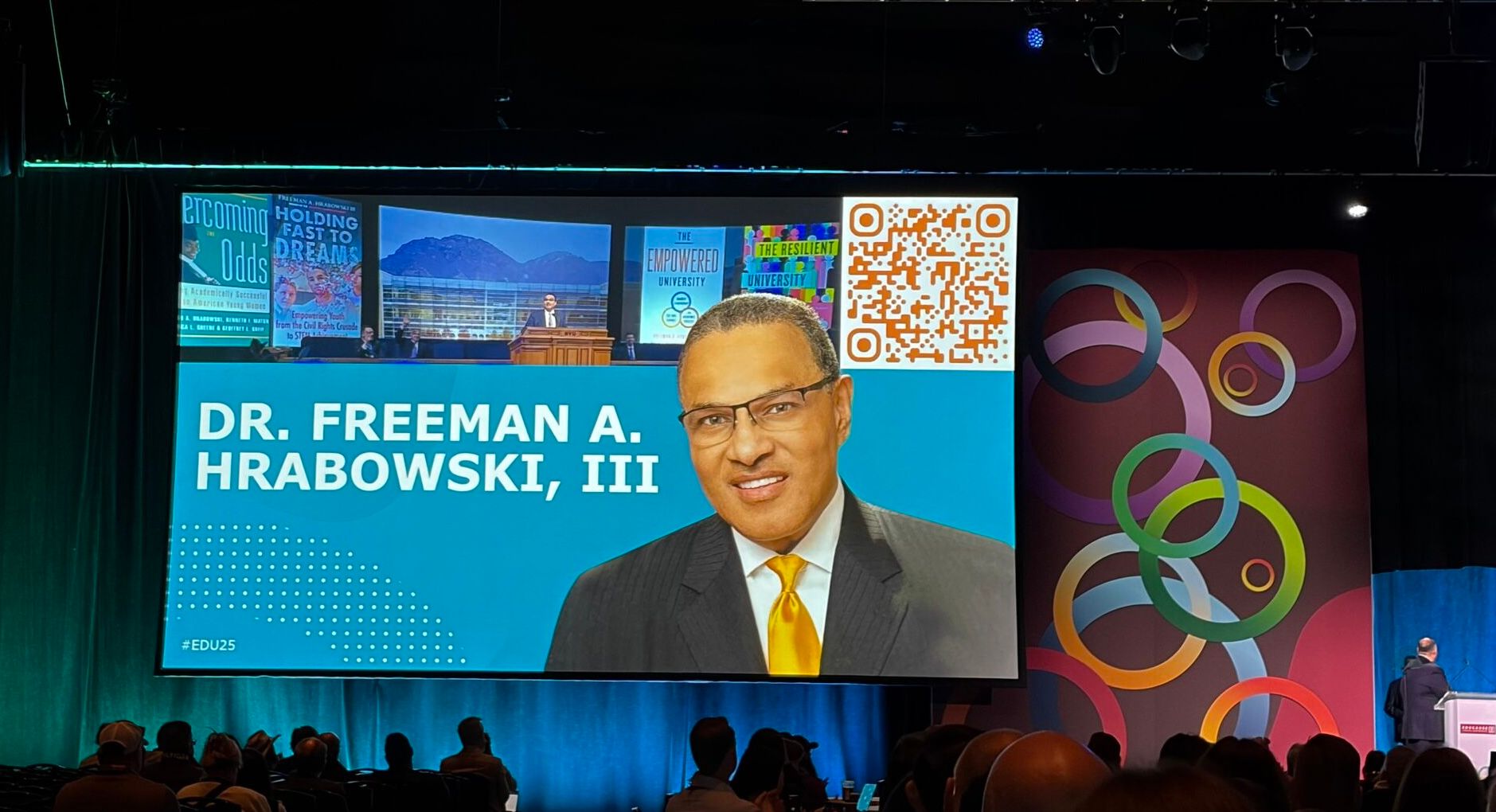Attending EDUCAUSE 2025 was like stepping into a living laboratory of innovation, energy, and collective imagination. From the very first keynote, my eyes were opened wide. Dr. Joy Buolamini set the tone for the entire conference with a message that was equal parts unsettling and empowering.
She unraveled the uncomfortable truth about AI’s persistent shortcomings around gender and racial bias. I was shocked to learn just how inaccurate facial recognition technology can be, especially for women with darker skin. She spoke about some of the injustices that have occurred, including cases in which people were wrongly accused.
Furthermore, I was surprised to learn that airport facial recognition (you know, the one where you don’t need to show your boarding pass to go through security but simply stand and smile for the camera) is optional. Her stories and research revealed how biased data and flawed systems can shape outcomes in ways that deeply affect real people. The conversation around ethical AI and responsible data design has never felt more urgent.
Yet she didn’t leave us in fear. She challenged us, deliberately, to question the tools we use, to remain aware, and to approach AI with both responsibility and courage. It was a call not to disengage, but to lead with intention.
Her keynote framed how I experienced the rest of the conference.
Reframing AI: Augmented, Not Artificial
One session that significantly impacted me was Vanderbilt University’s Dr. Jules White, who invited us to rethink our language around AI. Instead of Artificial Intelligence, he urged us to consider Augmented Intelligence.
His metaphor captured it perfectly: AI should be an “exoskeleton for the mind.” Not a replacement. Not a thread. An amplifier! That framing, AI as augmentation, captures the importance of embracing “human-centered AI.”
His perspective resonated deeply, especially as someone who works at the intersection of leadership, technology, and human-centered problem-solving. The idea that AI’s highest value is in elevating uniquely human attributes made me deeply reflect on what mine are… and how I can leverage AI tools differently. A true “hmm…” reflection moment.
Agile Thinking, Everywhere!
Another unexpected delight was seeing how agile software development principles are making their way into higher education leadership, far beyond traditional IT contexts. Institutions like Utah Valley University and accreditation entities like the Higher Learning Commission shared how they are using agile frameworks to reshape strategic planning, modernize change management, and manage cross-functional and cross-university requests.
It was refreshing to see agile not as a rigid process, but as a flexible, human-centered mindset applied in creative, nontraditional ways. It reminded me just how universally relevant these principles are when teams need to adapt, collaborate, and move forward with clarity. Agile methodologies aren’t just for software development, they’re frameworks for adaptive leadership.
The Buzz of Possibility
There was a palpable hum throughout the conference, a kind of intellectual buzz that reminded me of a beehive in motion. Everywhere I turned, someone was experimenting with new ways to leverage AI tools to expand student access, streamline educational delivery, and eliminate barriers that have persisted for years.
It felt like sitting in the front row of an improv show where we were all co-creators, testing ideas in real time, sharing what worked, and imagining what could be built next. The excitement was infectious!
Closing Reflections: Keeping Hope Alive
As powerful as the opening keynote was, I would be remiss not to acknowledge the impact of the closing keynote by Dr. Freeman A. Hrabowski, III, former president of UMBC and an admired leader in Maryland.
His words were a grounding force. He reminded us that:
“The way we think of ourselves… the language we use… the way we interact with each other… the values we hold… we become like the things we love.”

He spoke about dreams, values, and the responsibility each of us has to shape a society rooted in hope. With the world changing as rapidly as it is, his emphasis on focusing on what we can control, our minds, actions, and attitudes, felt both practical and profound. I left his keynote feeling energized, inspired, and aware of my own role in fostering thoughtful leadership in an AI-driven world.
Walking Away (or flying home…)
EDUCAUSE 2025 wasn’t just a conference, it was a collective awakening. It reminded me that, at its best, technology is intertwined with humanity. It requires curiosity, humility, courage, and hope. Conferences like EDUCAUSE reaffirm why accessibility, inclusion, and iterative innovation belong at the heart of AI adoption.
I came home with new ideas, deeper convictions, and a renewed commitment to leading with intention as AI tools continue to evolve. And above all, I left believing more strongly than ever that the future of education and the future of technology are things we shape together.


